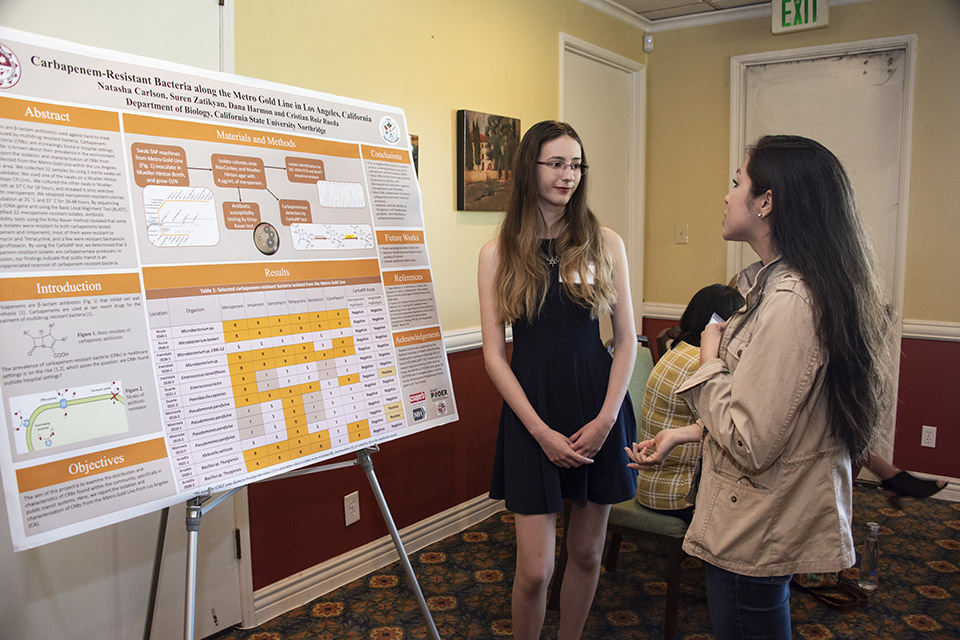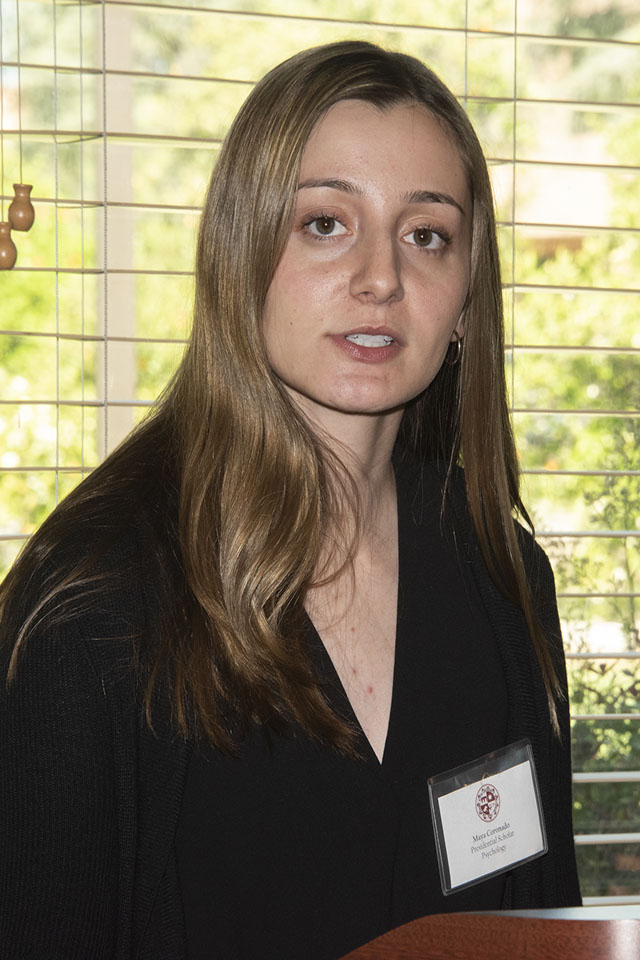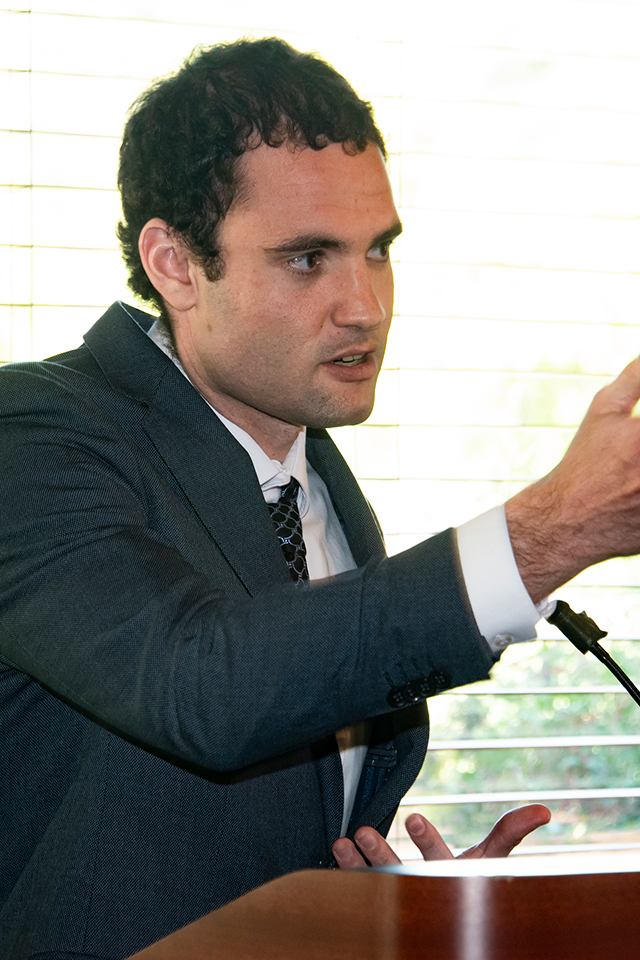Students Present Their Work at 2019 Presidential Scholar Exhibit
Family, friends and mentors gathered April 12 at the Orange Grove Bistro to celebrate the research of CSUN students at the 2019 Presidential Scholars Exhibit.
“We all know, it’s not trite to say, ‘It takes a village,’” said CSUN President Dianne F. Harrison. “It does take a village to help achievements move forward and progress, and we have a great village here with our faculty, with our staff, with our family and friends who help make all of this possible.”
The event featured presentations from recipients of the 2018-19 Presidential Scholarship, a competitive award given each year that provides undergraduate students the opportunity to work with faculty mentors to develop, complete and present an outlined research project. The scholarship aims to alleviate students’ financial needs and free them to focus full-time on their academic and research interests. Three students received this year’s awards.
Natasha Carlson (Biology) and Nicholas Lopez (Kinesiology) each focused their research on the spread of antibiotic-resistant bacteria throughout Los Angeles County, working with faculty mentor Cristian Ruiz-Rueda, assistant professor of biology. They studied bacterias resistant to carbapenem, a last-resort antibiotic that is commonly used to treat multi-drug-resistant bacterial infections in hospital settings. However, the spread of bacteria resistant to antibiotics like carbapenem is increasing outside of the typical hospital setting, they said. Some antibiotic-resistant bacteria can also transfer their resilience to neighboring bacteria, which creates a huge problem in areas like Los Angeles.
“About 50 percent of people infected with multi-drug-resistant bacteria infections end up dying, and they’ve been classified as emerging threats,” Carlson said. “So, our lab was interested in seeing if these bacteria have spread elsewhere.”
Carlson studied bacteria samples along the Los Angeles Metro Gold Line, specifically looking at the subway system’s TAP card keypads, which is used by thousands of Angelenos each day. She found that the Los Angeles Metro Gold Line was a fertile area for this type of research. Out of the 14 organisms found and studied, three were carbapenemase producers, meaning they are completely resistant to the antibiotic. The others were found to be resistant to carbapenem or other antibiotics.
Lopez began working in the microbiology lab on a project looking for pathogens in fresh produce after attending the Maximizing Access to Research Careers (MARC) Molecular Biology Research Bootcamp in 2015. After a year, he took over the project and presented his work at the 2017 CSUN Symposium. His current research looks at the distribution, frequencies and characterization of carbapenem-resistant bacteria in Los Angeles-area soils. His goal was to log which bacteria have resistance, what antibiotics they are resistant to and measuring the bacteria’s ability to spread. Lopez found multiple antibiotic-resistant bacteria throughout the county.
“Antibiotic resistance is an urgent threat and something we’re battling in Los Angeles,” Lopez said.
Maya Coronado (Psychology) studied whether the personalization of robotic toys would create more affinity and connection to the technology amongst the 400 participants. Along with her mentor psychology professor Abe Rutchick and colleagues in CSUN’s Department of Psychology, Coronado studied the relationship participants developed with insect-shaped robotic toys known as HEXBUGs. She wanted to see if the same sense of connection humans have in a conversation translated when applied to a technological entity.
“Technology and the personalization levels of it are increasing so rapidly,” Coronado said. “You have your smartphone technology, your personal assistants such as Amazon Alexa, but we’ve noticed that there is a severe lack of literature about anthropomorphic properties.”
After manipulating and observing how participants interacted with their HEXBUG in various activities, Coronado concluded that positive outcomes, such as winning a best two out of three race, produced positive feelings and a sense of connection to the toy.
“We found that positive outcomes induce liking and connection, independent polarization. It may be that in the absence of positive and negative outcomes, as in study one, more personalization has a strong known effect,” Coronado said.
Her findings suggest as we move to more AI and a robotic future, it is important to understand the connection between users and machines and how personalization can play a part in solidifying a bond.
Since its inception, the Presidential Scholarship program has provided students with an avenue to hone their interests, apply them on a grander scale and contribute to the CSUN and Greater Los Angeles communities. Six Presidential Scholars have been named for the 2019-20 academic year.




 experience
experience